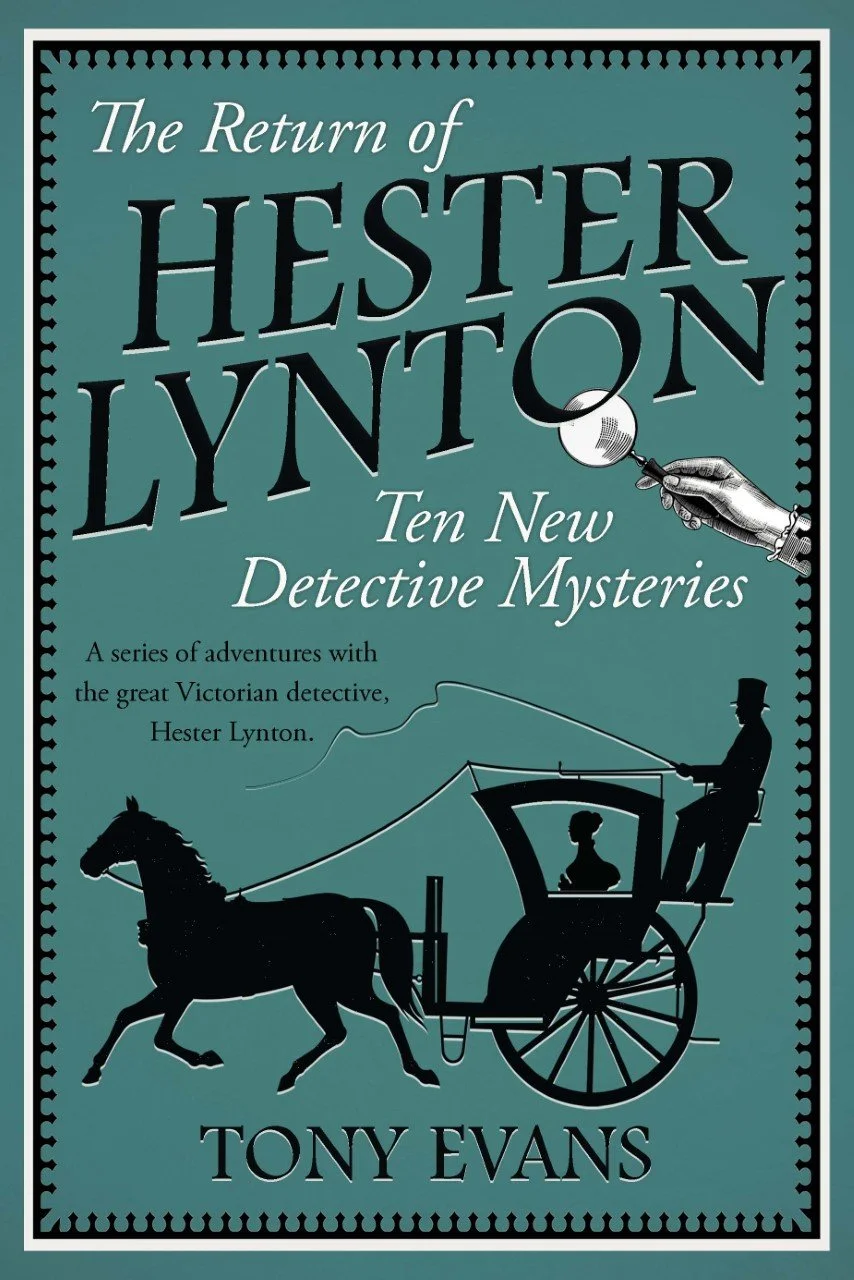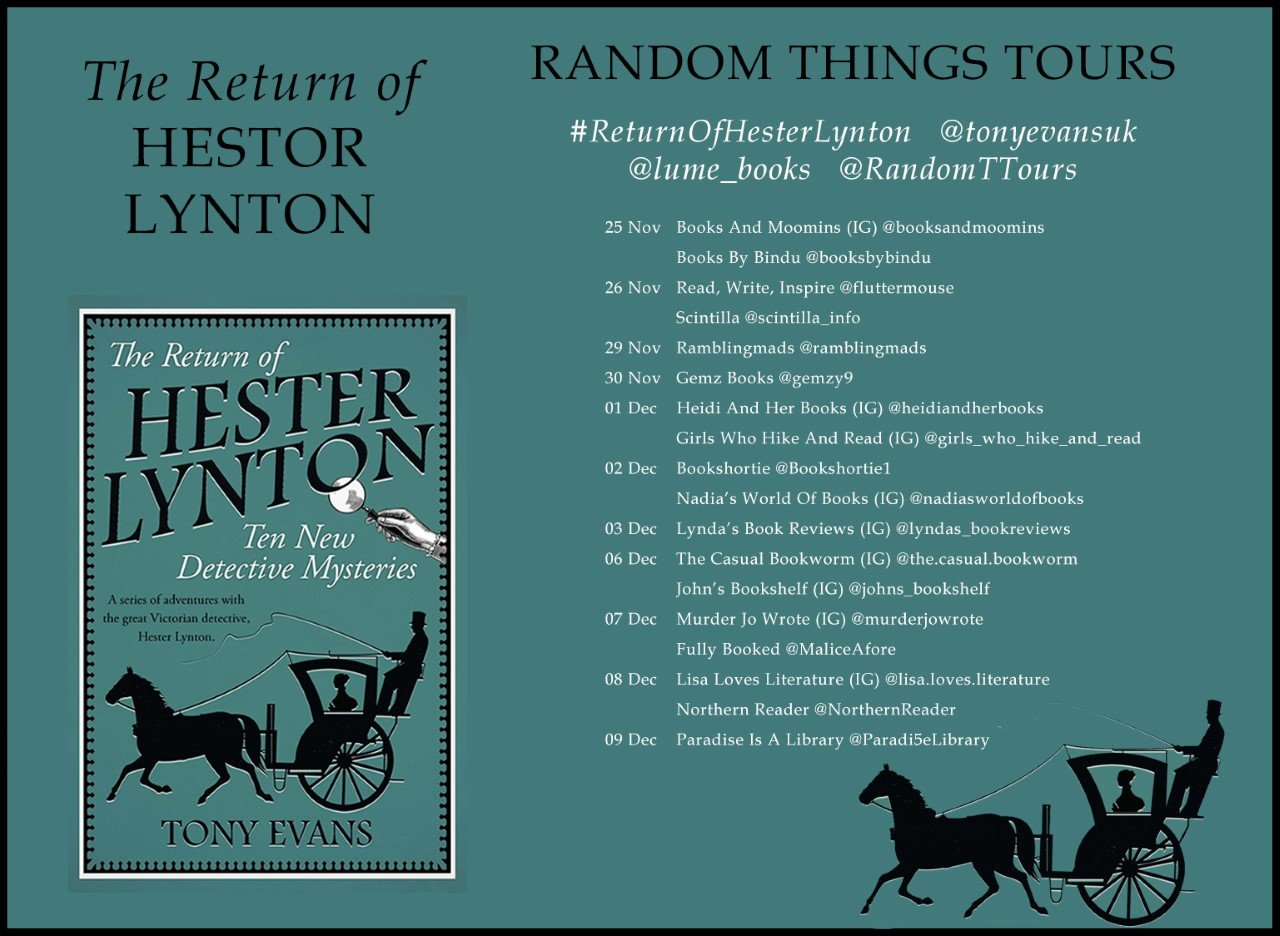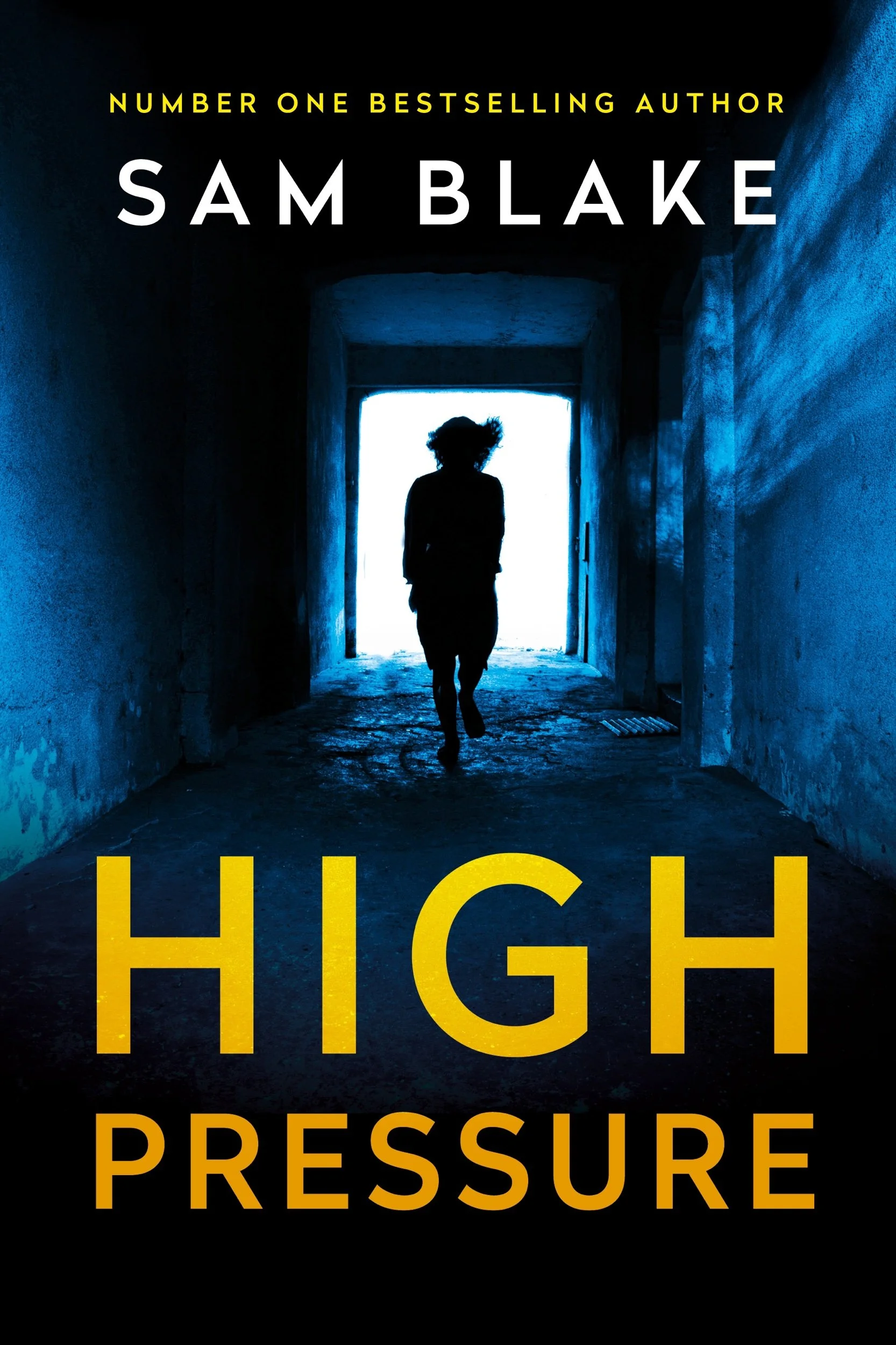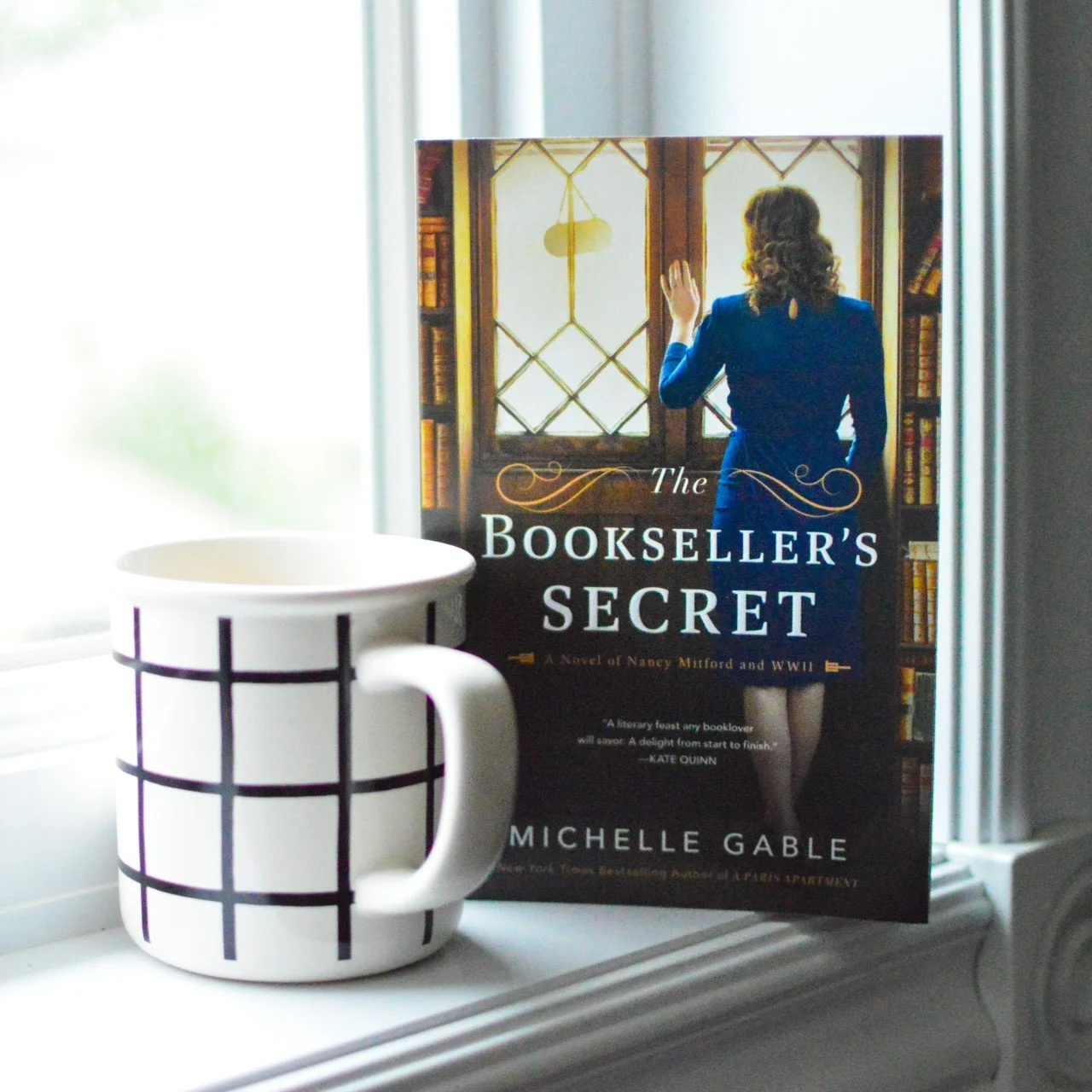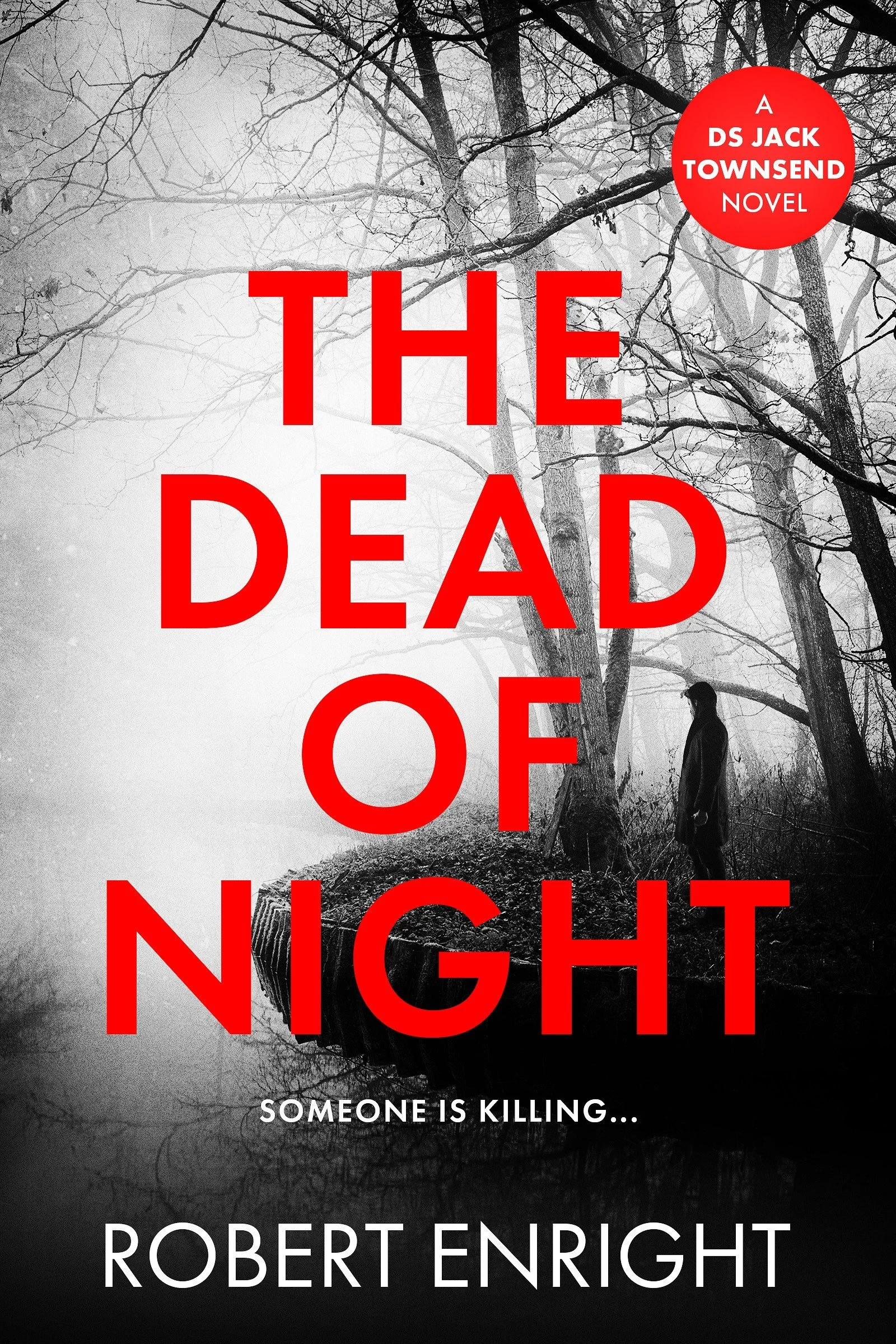The Return of Lester Lynton by Tony Evans
Victorian England’s most celebrated lady detective returns in ten new brain-teasing mysteries.
With scheming fraudsters, corrupt doctors, devious forgers and terrible murderers afoot, Hester Lynton, and her trustworthy assistant Ivy Jessop, have their work cut out for them. But amidst the dirt and deprivation of 1800s London, our investigative duo will stop at nothing to catch their criminals.
The Return of Hester Lynton is a collection of ten absorbing cosy detective stories, perfect for fans of Sherlock Holmes, Mrs Gladden and the Lady Hardcastle mysteries.
About the author
Tony Evans is a full-time writer. His print publications include eighteen adaptations of classic novels published by Real Reads Ltd. His eBooks include the Hester Lynton mystery series and the Jonathan Harker mystery series. Tony has also written student guides for Hamlet, Dracula and The Murder of Roger Ackroyd: all published by ZigZag Education. He lives with his wife in the Yorkshire Dales.
Follow him on Twitter: @tonyevansUK
I'm pleased to be able to share an extract from the book today.
1. The Case of the Fanshaw Inheritance
It was inevitable that the majority of the cases Hester and I encountered involved criminality in all its most varied and lurid forms. Nevertheless, some of the most noteworthy had little to do with law-breaking, being the kind of conundrums that the official police force had neither the time nor the duty to investigate. One such was the intriguing puzzle brought to us early in our partnership, not much more than a year after Hester had invited me to join her – as secretary and companion – in her practice as a consulting detective at 12 Newsome Street.
Hester had received a letter from her client three days before his visit, and as we awaited his arrival that Saturday afternoon she extracted it from its buff-coloured envelope and passed it to me. It comprised the sum total of what we knew of him to date.
Please see the below picture for the letter.
‘What do you make of our mystery correspondent?’ Hester asked me, with a twinkle in her eye. I knew her well enough to gather that she had made certain deductions herself, and I decided that I was not about to be outdone.
‘Well,’ I began, ‘the address is certainly suggestive, and the handwriting is educated. Mr Fanshaw is likely to be a country gentleman of some means – and he is an Oxford man, to boot. The Latin phrase shows that his college studies have not been forgotten. Perhaps he is a scholar. I am afraid I do not have his command of Latin. Can you translate his quota- tion for me?’
Hester nodded. ‘Ah yes; “amicus certus in re incerta” – “a good friend in time of trouble” would convey the sense best, I think. Cicero quotes the phrase, used by an earlier writer whose name escapes me. We could ask Mr Fanshaw to elaborate, although I suspect he will have more pressing things to discuss with us.’
‘And what do you make of his letter?’ I asked.
Hester took the white sheet from me, rubbed it between finger and thumb and held it up to the window.
‘This paper is of distinctly inferior quality,’ she said. ‘Hardly what one would expect an affluent country squire to be using. To enclose it in an ill-matched buff business envelope is also most unfashionable. It suggests a need for economy somewhat at odds with being the owner of a country estate. And as Fanshaw seems only able to come to London at weekends, he evidently has a job of some kind which requires his presence in Kent during the week. Fanshaw might perhaps be a butler, bailiff or some other employee of the house, but his college degree makes that unlikely. I see Abel Johnson recommended him to us. Do you remember him? A teacher in a small preparatory school, wrongly accused of pilfering. Teaching is a perfectly respectable profession, but not one where Johnson might be expected to be a close friend of a prominent country gentleman. I would hazard a guess that Albert Fanshaw may also be a school teacher, a resident master, and that Greystones Manor is his school. It evidently not one of the leading public schools, or we would recognise the name. His modest salary would explain his economical taste in writing paper. Note also the declaration of his Oxford degree, and the gratuitous insertion of the Latin tag; both characteristic of a schoolmaster sensitive of his tenuous status in the lower reaches of academia. However, I see that it is almost three o’clock. If Fanshaw is indeed a master, then the punctuality characteristic of his profession should ensure his imminent arrival.’
I was about to reply to Hester when the distant ringing of the electric doorbell confirmed that our visitor had arrived. Shortly afterwards, Mrs Parsons ushered him into our room.

